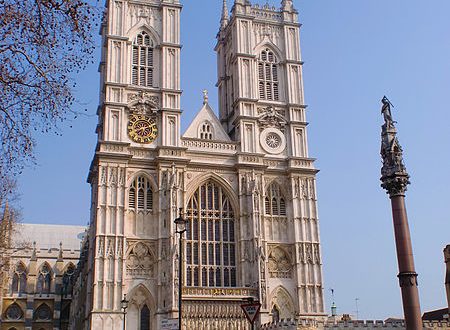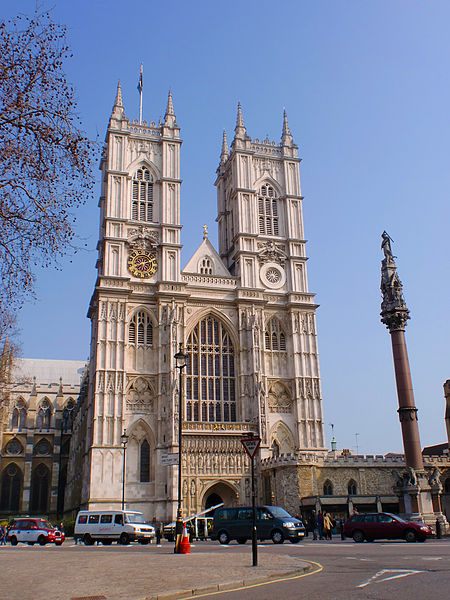How did the city of London react to news of the battle?
By Dan Spencer
On Friday 25 October 1415 a ‘lamentable report, replete with sadness, and cause for endless sorrow, had alarmed the community throughout all the City’. This was a rumour, recorded in the official records of the city known as the Letter-Books, that the movements of the king and his army ‘lay shrouded in mystery’. After which the citizens were ‘ardently athirst, in expectation to hear some encouraging news of the success of the royal expedition’. This was to come four days later.
News of the battle reached London on the morning of the 29 of October. According to the Chronicle of London (written in the late fifteenth century), this information arrived whilst the population were still asleep in their beds. The citizens of London then went to all of the churches in the city and rang all of their bells in celebration exclaiming the hymn ‘Te Deum laudamus’ (God, we praise you).
An entry in Letter-Book I then describes what happened next:
And on the morrow of the Apostles Simon and Jude, the said Nicholas Wottone, Mayor, and the Aldermen, together with an immense number of the Commonalty of the citizens of the city aforesaid, going on pilgrimage, went on foot to Westminster, and, having first made devout thanksgiving, with due solemnity, in the Minster there, for the joyous news that had then arrived, the said Nicholas Wottone was by the said Aldermen and Commonalty presented before the Barons of the Exchequer of our Lord the King, at Westminster, admitted, and sworn.
The entry in the Letter-Book makes clear that the pilgrimage on foot was not to set a precedent (it was customary to ride in state on such occasions). Instead this was an exceptional set of circumstances due to the joy experienced by the citizens at hearing news of the victory after having previously received bad tidings. Furthermore the pilgrimage was to honour God and his saints particularly that of St Edward whose shrine was at Westminster.
This information came from R. R. Sharpe, London and the Kingdom, volume 1 (London: Longmans & Co., 1894); Harris Nicholas, ed., A Chronicle of London from 1089 to 1483 (London: Longmans, 1827); Henry Thomas Riley, ed., Memorials of London and London Life, in the XIIIth, XIVth, and XVth Centuries. Being a series of extracts, local, social, and political, from the early archives of the City of London. A.D. 1276-1419 (London: Longmans & Co., 1868).
Image of Westminster Abbey taken from Wikipedia, licensed under the Creative Commons Attribution-Share Alike 3.0 Unported license, author Σπάρτακος

